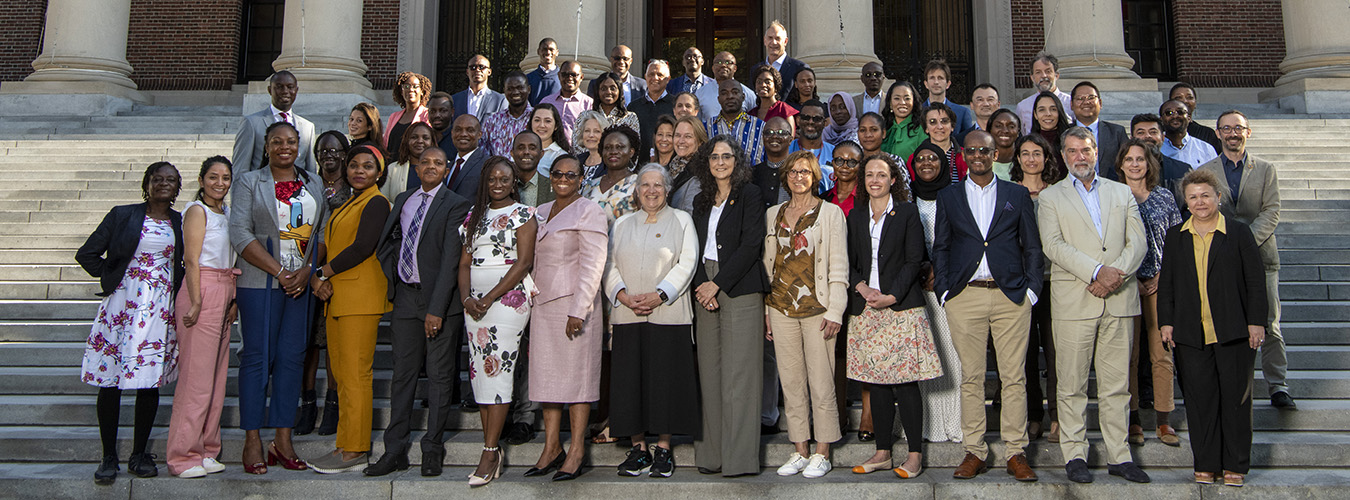ISGlobal-University of Barcelona offers an overview of the 2022 edition of the “Science of Eradication: Malaria” leadership development course in an article titled, “A Week of Insightful Discussions Around Malaria.”
News
A Multidisciplinary Approach to Eradicating Malaria
A new Harvard T.H. Chan School of Public Health article, A Multidisciplinary Approach to Eradicating Malaria, features interviews with teaching faculty Professors Dyann F. Wirth and Marcia Castro of Harvard University about the “Science of Eradication: Malaria” leadership development course held at Harvard University from June 19-24, 2022.
Seeking new momentum in malaria fight, Harvard Gazette
A new Harvard Gazette article, Seeking new momentum in malaria fight, features an interview with founding course faculty members Professor Dyann F. Wirth of Havard University and Dr Pedro L. Alonso of the WHO’s Global Malaria Programme (then faculty at the Barcelona Institute for Global Health).
MalariaX course explores ways to eliminate malaria
To advance efforts to support the control, elimination, and eradication of malaria, Harvard University’s Defeating Malaria: From the Genes to the Globe Initiative and the edX and HarvardX online learning platforms have launched, (PH425x) MalariaX: Defeating Malaria from the Genes to the Globe. This free, new online course explores cutting-edge science and technology, and examines policies needed to […]
New research agenda for malaria elimination and global eradication
More than 180 scientists, malaria program leaders, and policy makers from around the world have come together through a consultative process to update the research agenda for malaria elimination and eradication, first published in 2011. The outcome is a series of seven ‘malERA Refresh’ (malaria eradication research agenda) papers that have been published as a special collection in PLOS […]
Genetically engineered mosquitoes to eradicate disease
As scientists explore the potential application of gene editing, they’re beginning to discover the many uses — and pitfalls — of the technology. In the case of malaria and other vector-borne illnesses, it’s become clear that gene editing could be a powerful new tool for mosquito control and disease eradication. At a live panel recorded at The Forum at the Harvard T.H. Chan School of Public Health, four experts discussed gene editing and how it might influence global and human health.
Dr Margaret Chan, Director-General of WHO, visits the course
The Director-General of the World Health Organization (WHO), Dr Margaret Chan, made a special visit to the Barcelona Institute of Global Health (ISGlobal) and the Faculty of Medicine of the University of Barcelona, to meet with participants of the Science of Eradication: Malaria leadership development course. At the invitation of Dr Pedro Alonso, Director of the WHO’s Global Malaria Programme and founder of ISGlobal, Dr Chan shared her thoughts on the progress to eradicate malaria and challenges of emerging pandemic threats.
Coordinating Against Malaria
A group of scientists, government officials, nonprofit leaders, malaria-control program directors, and others gathered at Harvard Business School this week sought to draw lessons from past eradication efforts as they embarked on a weeklong leadership program focused on eradicating another age-old scourge: malaria. Read coverage of the 2015 Science of Eradication: Malaria course on Harvard Gazette
Third edition of Science of Eradication: Malaria
The third edition of the Science of Eradication: Malaria leadership development course, organized by three institutions with a wealth of knowledge and expertise in malaria, was hosted June 1-9, 2014 in Basel, Switzerland. First launched two years ago, this course has become a benchmark in the field of eradication. Read announcement on Barcelona Institute for Global Health […]
Infection in malaria-transmitting mosquito discovered
In a recent article published in Nature Communications, Harvard Professor Flaminia Catteruccia and an international group of researchers describe evidence of an intercellular bacterial infection in natural populations of two species of Anopheles mosquitoes. The infection, called Wolbachia, has been shown in laboratory settings to reduce the incidence of pathogen infections in mosquitoes and has the potential […]
